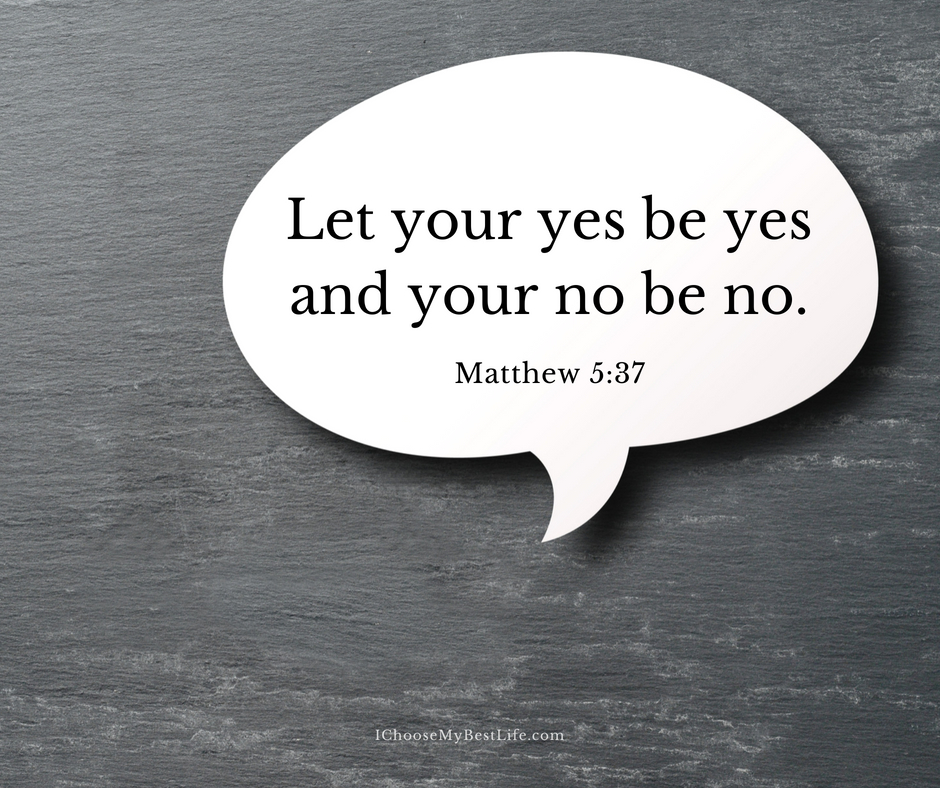Do you struggle with how to say “no”? If so, this guest post from Beth Beutler will be incredibly helpful! As the Managing Director of HOPE Unlimited, Beth knows how to help overwhelmed professions excel — and exhale.
********
You’ve had an exhausting week at work, and a friend invites you to go see a play that evening. You’d enjoy the play, but know that downtime is a vital part of your health routine.
You’ve been invited to serve on a planning committee for an event supporting a cause you deeply believe in. But you’ve also taken on a big project at work, and know that it wouldn’t be wise to make both commitments at the same time.
You’ve been asked to do something, go somewhere, or take on a task that you simply don’t want to do. You could easily fit it into your schedule, but you just don’t have the desire to do it.
For each of the above scenarios, you’d love to be able to say “no” but you hate disappointing others or missing out on something of value (which would be disappointing yourself).
“No” is a hard word to say. Most of us don’t like the idea of disappointing someone else (or ourselves), but the fact remains that unless we want to live a life of sustained stress, we cannot say “yes” to everything. This is particularly hard when the opportunity in front of us is a positive one. Yet it’s important to have a fit “no” muscle so that when we really need to use it, it’s ready.
One way to do this is to be prepared with a practiced answer for the times “no” will be a necessary response. Some of us get caught in giving out too much information when we say “no,” in part perhaps because we are justifying to ourselves that it’s the wisest decision at the time.
So here’s a phrase that can work well:
Thanks for asking, but that won’t work for me (right now).
Let’s examine this.
Thanks for asking … conveys appreciation to the person for even considering extending an invitation to you.
But … this is where it’s clear that the opportunity isn’t going to be a fit. It’s the “negative hinge” that turns the conversation to where you need it to go. “But” is a strong word, but in cases where you have to be resolute, it is wise not to sugarcoat.
That … this refers to the specific invitation, not every invitation you receive from this person.
Won’t work for me … Notice this doesn’t give a lot of details. Maybe it won’t work for you because you’re exhausted, or you’re simply not interested. There’s no need to give an in-depth explanation. You are not being dishonest unless you make up a truly invalid excuse.
Right now … I put that in parenthesis because if you use it, you are giving the person permission to seek you out in the future. If you would be fine with that, go ahead and use it, and even consider adding, “Would you consider asking me in the future?”
Depending on the relationship you have with someone, they may press for more details. It’s still up to you how far the discussion goes. An alternative fallback to “That won’t work for me” is “I have other plans” or “I have some personal business to attend to.” It’s OK for your other plans to be time with your family or downtime with yourself! Personal decisions for margin ARE personal business.
Some people might like to add, “I’m sorry” to these responses. Only do that if you are truly sorry to miss the opportunity, not because you want to avoid conflict.
Now, let me give a caution. A danger in self-care is the possibility of making nearly all decisions be related to serving OUR best interests. In the Bible, we are shown in more than one place that sacrificial love and service reflect our Savior. (Jesus didn’t say “no” to the cross.) This does not mean you have to say “yes” to every opportunity, but it does mean that sometimes you WILL chose to say “yes” to the thing that is inconvenient, or that may be demanding for a season, or that will bless someone else even if you’d rather stay home.
Whatever you decide, “Let your yes be yes and your no be no” (Matthew 5:37) and don’t feel compelled to give a drawn-out answer to an invitation that may not work for you (right now).
Beth Beutler is a collaborative virtual assistant, consultant, business soft skills trainer and writer who specializes in Helping Overwhelmed Professionals Excel. Beth’s services and resources help others excel in personal growth, inspired thinking, team building, productivity, communication and strengthening of personal values. Some of her materials are business and personal productivity focused, while others have a more overt faith based tone.
She is the author of A Light for Your Path: Helping You Reflect on Each Chapter of the Bible and was a contributor in Organizing from the Heart: Change Your Mindset, Conquer Your Challenges.



Thank you for this permission to say no in a pleasant yet firm manner.
For me, this is a difficult statement to give my husband. He is a pastor and I have always been very involved in the ministry with him. However, with various changes and challenges of life, love and living, he doesn’t always see how to define the marriage/ministry blur. I am learning-slowly- how to confidently and gently call attention to the need for boundaries, rest and making time for personal goals, vision and dreams inside our personal as well as public ministry lives. Again, thank you for the reminder of REST.
Love the Christ-like nature of your statement DeAnna. Yes, confidently and gently is the best way to address the need for boundaries in ministry and personal life. Blessings to you.